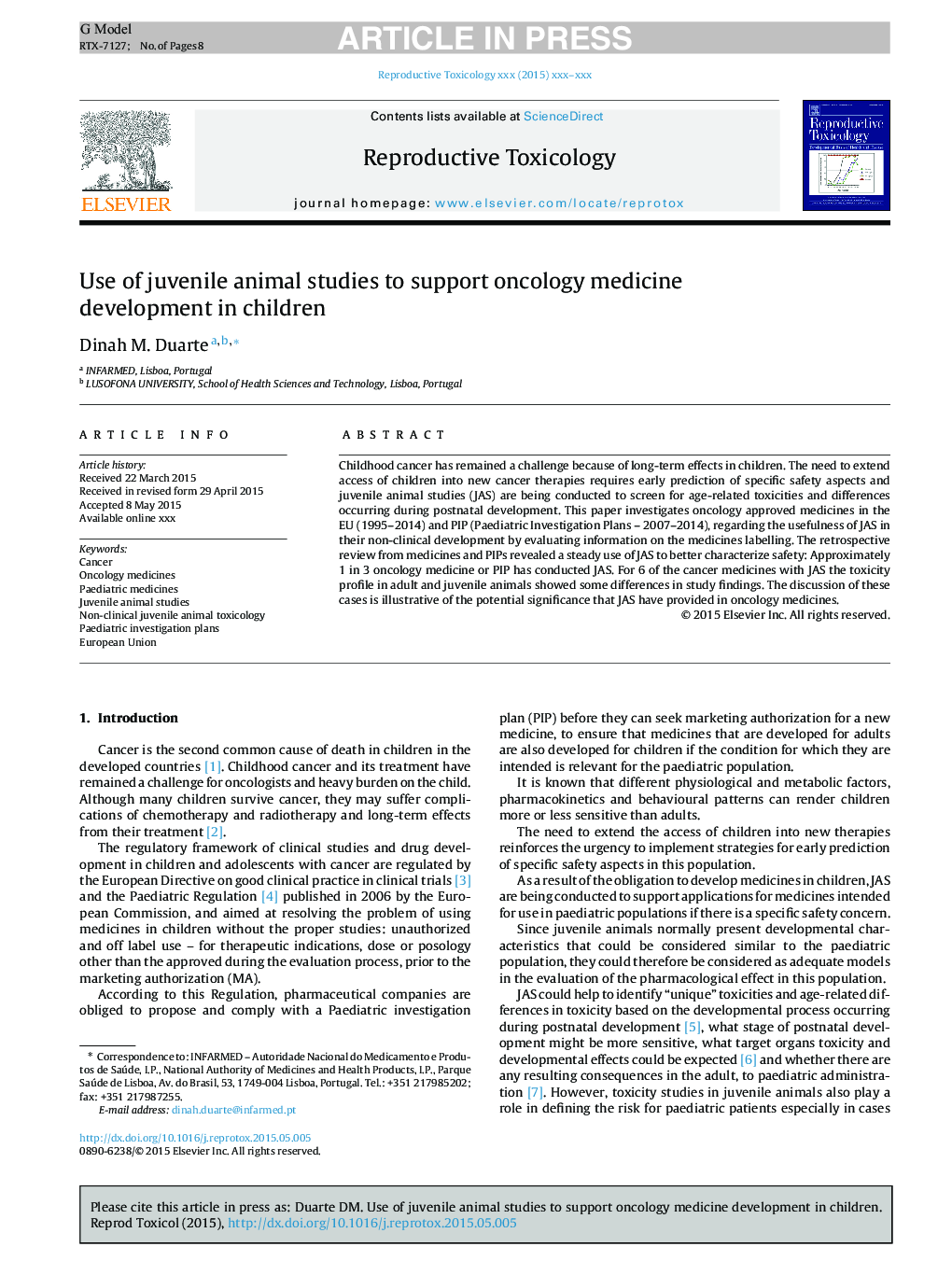| Article ID | Journal | Published Year | Pages | File Type |
|---|---|---|---|---|
| 5858317 | Reproductive Toxicology | 2015 | 8 Pages |
Abstract
Childhood cancer has remained a challenge because of long-term effects in children. The need to extend access of children into new cancer therapies requires early prediction of specific safety aspects and juvenile animal studies (JAS) are being conducted to screen for age-related toxicities and differences occurring during postnatal development. This paper investigates oncology approved medicines in the EU (1995-2014) and PIP (Paediatric Investigation Plans - 2007-2014), regarding the usefulness of JAS in their non-clinical development by evaluating information on the medicines labelling. The retrospective review from medicines and PIPs revealed a steady use of JAS to better characterize safety: Approximately 1 in 3 oncology medicine or PIP has conducted JAS. For 6 of the cancer medicines with JAS the toxicity profile in adult and juvenile animals showed some differences in study findings. The discussion of these cases is illustrative of the potential significance that JAS have provided in oncology medicines.
Related Topics
Life Sciences
Environmental Science
Health, Toxicology and Mutagenesis
Authors
Dinah M. Duarte,
